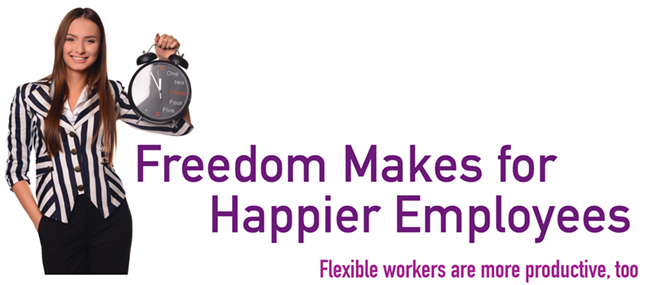
 In a study that should influence the executive ranks in Research Triangle Park, employees in a work-flexibility program experienced higher levels of job satisfaction and reduced levels of burnout than others at the company.
In a study that should influence the executive ranks in Research Triangle Park, employees in a work-flexibility program experienced higher levels of job satisfaction and reduced levels of burnout than others at the company.
This is the first time a randomized, controlled trial has been used to measure the effects of workplace flexibility in a U.S. firm. The research took place over 12 months in the IT division of a Fortune 500 business.
The study was conducted by Phyllis Moen, who holds the McKnight Endowed Presidential Chair in Sociology at the University of Minnesota; Erin L. Kelly, a professor in Work and Organization Studies at the MIT Sloan School of Management and an affiliate of the Institute for Work and Employment Research at MIT Sloan; and their colleagues in the Work, Family and Health Network.
Moen and Kelly split the IT department in two. In the pilot program, half learned about practices designed to increase their sense of control over their work lives. These methods focused on results, rather than face time at the office.
 Employees then implemented what they had picked up. This ranged from shifting job schedules and working from home to rethinking the number of daily meetings they attended to increasing their communication via instant messenger. It also included doing a better job of anticipating periods of high demand, such as around software releases.
Employees then implemented what they had picked up. This ranged from shifting job schedules and working from home to rethinking the number of daily meetings they attended to increasing their communication via instant messenger. It also included doing a better job of anticipating periods of high demand, such as around software releases.
Managers in the pilot group also received training in supporting the personal lives and professional development of those who reported to them.
Conversely, the control group didn't receive the training and, instead, was governed by the company's preexisting policies.
 The results were definitive, say Moen and Kelly. Employees who participated in the initiative said they felt more control over their schedules and support from their bosses.
The results were definitive, say Moen and Kelly. Employees who participated in the initiative said they felt more control over their schedules and support from their bosses.
Plus, they were more likely to say they had enough time to spend with their families.
These people reported greater job satisfaction and were less burned out and stressed.
They also experienced decreases in psychological distress, which covers symptoms that don't amount to clinical depression.
The study appears in this month's issue of the American Sociological Review. It adds to a growing body of research showing that more elastic arrangements result in happier, healthier and more productive employees.
Unfortunately, these new arrangements often have a bad reputation, says Kelly.
"The worker thinks, 'If I ask for special treatment, it will kill my career and I won't get promoted.' The manager thinks, 'If I give in to this employee, others will ask me, too, and no one will get their work done.'
 "Even many academics take a skeptical view of flex programs and see them as a way for corporate America to take advantage of workers."
"Even many academics take a skeptical view of flex programs and see them as a way for corporate America to take advantage of workers."
But it shouldn't be this way, Moen suggests.
"Our research demonstrates that workers who are allowed to have a voice in the hours and location of their work not only feel better about their jobs, but also less conflicted about their work-to-family balance.
"Crucially, these workers are also more efficient and more productive on the job. In other words, workplace flexibility is beneficial - not detrimental - to organizations."
Previous studies have shown that initiatives that improve employees' well-being also improve the bottom line: they increase productivity and decrease absenteeism, turnover and "presenteeism" (showing up but not being engaged).
"Today's workers are bombarded by advice on how to juggle their work and family lives - we're told to take up yoga, learn to meditate or check email only twice a day," says Moen.
"But individual coping strategies alone won't solve the problem. Our study makes clear that organizational initiatives, including programs that promote greater flexibility and control for workers as well as greater supervisor support, are needed."